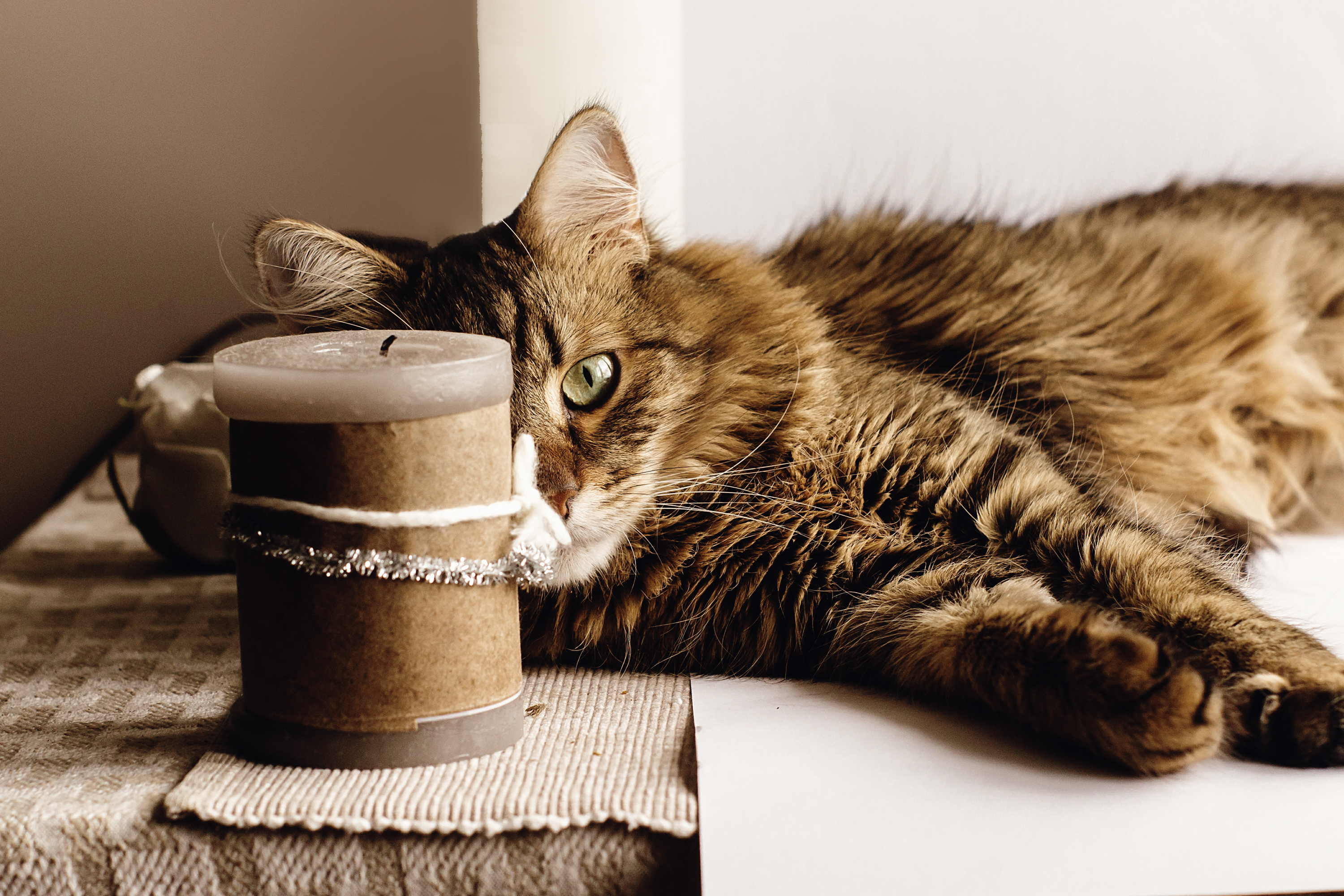Cats and Aromas
To some of us there is nothing more soothing at the end of the day than couching it with a snuggly fur baby and a sweet smelling home. While cats are not noted for having as keen a sense of smell as dogs, they can be affected by different aromas just as a dog can. As nice as it may be to enjoy essential oils or aromatherapy - some of the compounds may be harmful to your feline friend.
Please note that there has not been many scientific studies done regarding animals and fragrances and a good bit of mis-information is out there on the web. None of these claims have been evaluated by the FDA nor can be backed up by scientific research. Any information contained here is not intended to diagnose, treat, cure or prevent any disease. If your pet appears to have serious health concerns, consult a vet!

As a general rule, cats are often more sensitive to the potentially-toxic and other dangerous effects of essential oils and other scents than dogs are, but it depends on the scent, the delivery method, and the pet. Cats by nature are curious and have to examine everything you bring home. It is important to be vigilant and keep a close on eye on your cat when using any type of fragrance delivery method. A cat's sense of smell is greater than that of most other mammals. That's great for feral cats who roam, tracking and hunting prey, but it's a potential source of trouble for housecats.
There is a lot of contradictory information out there regarding cats and scents. It has been stated repeatedly that cats lack certain enzymes and cannot metabolize these toxins at all. I have found this not to be the case after speaking with professionals in the scientific community. It's not that they cannot metabolize them, it's more that they cannot metabolize them quickly like a dog or a human can and this in turn can cause a build up in their bodies, possibly causing liver damage. These toxins produced from essential oils are known as phenols, ketones and terpenes. At the same time it's stated that there are health benefits from some of these compounds. With this in mind I have tried to compose a list of the different oils broken down by the compound. I would recommend using caution when using any of the following. If in doubt about your pet's safety, consult your vet.
Essential oils with high levels of phenols
- Anise
- Basil
- Bay Laurel
- Birch
- Cassia
- Cinnamon
- Citronella
- Clove
- Eucalyptus
- Marjoram
- Mountain savory
- Nutmeg
- Oregano
- Parsley
- Peppermint
- Tea tree
- Thyme
- Wintergreen
- Ylang ylang
Essential oils with high levels of terpenes - pinene
- Cypress
- Dill
- Eucalyptus
- Fir
- Juniper
- Myrtle
- Nutmeg
- Pine
- Rosemary
- Spruce
Essential oils with high levels of terpenes - d-limonene
- Bergamot
- Black Pepper
- Celery Seed
- Dill
- Grapefruit
- Lemon
- Lime
- Mandarin
- Spearmint
- Sweet Orange
Essential oils with high levels of ketones
- Blue Tansy
- Cedar
- Davana
- Dill
- Fennel
- Hyssop
- Jasmine
- Marigold
- Myrrh
- Peppermint
- Rosemary
- Sage
- Spearmint
- Thuja
- Vetiver
- Yarrow
So you may be asking yourself what is safe for them?? Remember, high concentrations of any oils can be harmful to your pets, even humans can be adversely affected. The key is dilution and moderation. Always be vigilant to your kitty's reactions when introducing new scents or oils. The only oils that are known to be safe to use around cats is lavendar, frankincense, copaiba and helichrysum oils.
Cats, like people are known to have preferences to certain scents. We have three cats that like to lounge around our shop and while working with different oils we have determined - one prefers our Witches' Brew blend, one prefers lavendar and our resident Fat Cat prefers cedarwood. To lessen any risks while using essential oil products, make sure that the area is well ventilated and the kitty has an escape route if the aroma becomes oppressive.